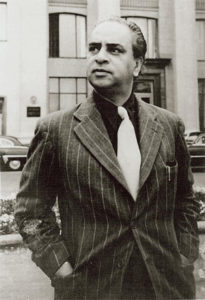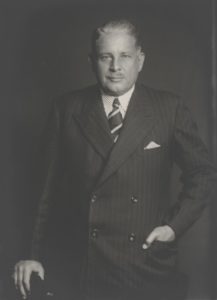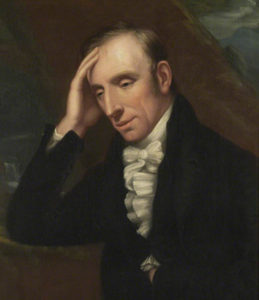We have decided to create the most comprehensive English Summary that will help students with learning and understanding.
Iswaran the Storyteller Summary in English by R.K. Laxman
Iswaran the Storyteller by R.K. Laxman About the Author
Rasipuram Krishnaswami Iyer Laxman was a famous Indian cartoonist and illustrator, famous for creating the comic strip ‘You Said It’ which features the experiences and observances of its protagonist, ‘The Common Man’. Bom in.Mysore, R.K. Laxman had six siblings. From a young age, he developed an interest in drawing; his caricatures of teachers were very popular among his classmates. He graduated with a Bachelor of Arts degree from Mysore University. Even as a student, he worked as a freelance cartoonist for many newspapers and magazines.
His first began working full-time as a political cartoonist for The Free Press Journal in Mumbai and later joined The Times of India. Apart from cartoons, Laxman also wrote short stories, essays and novels, such as The Hotel Riviera and The Messenger. Interestingly, Laxman’s application to the School of Art, Mumbai had been rejected citing ‘lack of talent he went on to create one of the most memorable cartoon characters the country has ever seen. ‘The Common Man’, a bespectacled, silent and balding representation of the average Indian citizen continues to be adored by the Indian masses even today.
| Poet Name | R.K. Laxman (Rasipuram Krishnaswami Iyer Laxman) |
| Born | 24 October 1921, Mysuru |
| Died | 26 January 2015, Deenanath Mangeshkar Hospital and Research Center, Pune |
| Education | The University Of Mysore, Maharaja’s College, Mysore |
| Awards | Padma Vibhushan, Padma Bhushan |

Iswaran the Storyteller Summary in English
Mahendra narrates a story to Ganesh. Mahendra is a junior supervisor in a firm that provides supervisors to construction sites. His job requires him to frequently move from one place to another. Mahendra is a bachelor and has no problems in adjusting to the various living conditions. He considers his cook, Iswaran, to be an asset. He accompanies Mahendra everywhere. Iswaran is a talented storyteller. He also has the amazing capacity to find and gather fresh vegetables, no matter how desolate the surroundings may be.
In the mornings, after Mahendra goes to work, Iswaran spends his days cleaning the shed, washing clothes, bathing, reading and taking afternoon naps. His enjoys reading Tamil thrillers. Iswaran’s own style of description is greatly influenced by these thrillers. While narrating incidents, Iswaran tries to create suspense and surprise endings. For instance, he would describe an uprooted tree as an enormous bushy beast, before revealing what it actually was. Iswaran has an uncritical audience in Mahendra.
One day, Iswaran relates an incident in which a wild elephant from a neighbouring timber forest had escaped from the timber yard and reached his town. To illustrate his story, Iswaran stamps about in imitation of the wild elephant. Iswaran says that after reaching the outskirts of the town, the elephant destroyed the stalls selling mud pots, clothes and fruits. It then entered Iswaran’s school, and the children ran to hide in the classrooms. The teachers went to the terrace and watched helplessly, as the elephant destroyed the school property.
Iswaran also watched the drama unfold from the rooftop. Suddenly, he grabbed a cane from a teacher and ran out to the ground. The elephant stamped its feet in anger and swayed a tree branch in its trunk; but Iswaran approached it slowly with the cane in his hand. As the elephant raised its trunk and trumpeted loudly, Iswaran ran towards it and hit it on its third toenail. The elephant was stunned for a moment; then it shivered and collapsed.
At this point, instead of concluding his story, Iswaran goes to warm up dinner, leaving Mahendra hanging in suspense. Upon his return, Mahendra has to remind Iswaran to conclude his story. Iswaran says casually that a veterinarian was called to revive the animal, and two days later, the animal was taken to the jungle by a mahout. When Mahendra asks him how he managed to subdue the animal, Iswaran says that he had read about a technique in the Japanese art of karate or jujitsu (he does not remember which) that paralyses the nervous system.
Iswaran’s style of storytelling is so enjoyable that Mahendra happily listens to his stories every day, regardless of whether they sound believable or not. With him around, Mahendra does not mind not having a television for entertainment.
One morning, Iswaran requests Mahendra’s permission to make a special dish for an auspicious occasion: it is the day when various delicacies are made to feed the spirits of their ancestors. That night, Mahendra complements Iswaran on his cooking skills. Iswaran is pleased, but then begins to tell a story about the supernatural. Iswaran tells Mahendra that the factory area they are living in used to be a burial ground. He says that on the first day of their arrival, he saw a human skull lying on the ground; and that he frequently comes across skulls and bones here. He also says that he can see ghosts at night: on full moon nights, he can see the ghost of a woman. He describes the ghost as a skeleton carrying a foetus in its arms.
Mahendra is scared but dismisses Iswaran’s claims as nonsense. Mahendra expects Iswaran to sulk after being scolded. The next day, however, he finds Iswaran in a cheerful and talkative mood. Even though Mahendra had claimed that he does not believe in ghosts and spirits, every night he goes to bed with a nervous feeling. He makes it a point to always peep out of his bedroom window to make sure nothing suspicious is happening outside. He used to enjoy watching the moonlight fall on the ground during full moon nights. However, after hearing Iswaran’s story, he stopped looking out of his window on full moon nights.
On one full moon night, Mahendra hears a moan outside his window. At first, he assumes it is a cat, but then realises that it does not sound like a cat. He avoids looking outside for fear of seeing something horrific. The moaning sound grows louder. At last he peers out of the window and sees a dark, cloudy form clutching a bundle. He falls back into bed, sweating and panting. After a while, he tries to reason with himself and decides that his mind is playing tricks on him.
During the course of the next morning, the memory of this incident begins to fade from his mind. As he begins to leave, Iswaran greets him with his lunch packet and office bag. He reminds Mahendra about the scolding he had given him when Iswaran had told him about the female ghost carrying a foetus in its arms. Iswaran says that he knows Mahendra had seen the ghost the previous night because he had also heard the moaning sounds coming from outside Mahendra’s window and had rushed to the spot. Mahendra does not answer but is very frightened. He hurries to his office to hand in his papers and decides to leave the haunted place the next day itself.
Iswaran the Storyteller Title
The title effectively captures the essence of the lesson, which recounts the tale of a storyteller named Iswaran, who weaves entertaining stories and anecdotes to entertain his master Mahendra. Ultimately, it is because of his ability to engage his listener and create an atmosphere, that he succeeds in frightening his master to such an extent that he actually resigns from his job and leaves the place that Iswaran’s stories had convinced him was haunted.
Iswaran the Storyteller Theme
The story touches upon the power of storytelling, and how the art of weaving a tale can exert a strong hold on the listener. Storytelling has been part of the ancient tradition in all human cultures, and was the sole method of passing ideas and cultural information down through the generations before the spread of writing. This story indicates the extent of influence a good storyteller can exert on the listeners, even when they are educated and non-superstitious.
Iswaran the Storyteller Setting
The story is set in an Indian village or small town in the period soon after Independence. It is set in a period when TVs had started becoming popular, but were not yet very common.
Iswaran the Storyteller Message
The story highlights the effect a good story can have on the listener. It also brings up the question of the supernatural, and suggests that ghosts might have been just the figment of imagination for a storyteller in the past. If we allow such ideas to take a hold on our minds, they can truly terrify us and play havoc with our lives. As we see in the story, Mahindra decides to resign from his comfortable job just because Iswaran’s story instils in his mind a fear of ghosts and spirits. This also shows that people can deeply influence others by creating a narrative or story that is persuasive enough.
Iswaran the Storyteller Characters
Mahendra: He was a bachelor who earned his living as a junior supervisor working at construction sites. He worked for a firm that supplied supervisors to remote sites. He was a simple man with simple tastes, and did not even feel the need to own a TV, even though he spent most of his time in remote areas far from sources of entertainment.
He was very adjusting and accommodating, and could live wherever he was posted, whether in a tent or a dilapidated building. He was a kind and caring master, and his servant Iswaran was happy to follow him around wherever he was posted.
Mahendra seems to have enjoyed listening to stories, and would spend his evenings listening to the tales recounted by Iswaran. He was somewhat naive and gullible, and believed the stories Iswaran recounted. In fact, Iswaran’s stories about ghosts and spirits had such an effect on him that he even resigned from his job because he believed the area was haunted. He was convinced that he had seen the spirit of a woman with a foetus that Iswaran had told him about in one of his tales.
Iswaran: He was a bachelor like his master. He was a religious man, as he bathed daily and said his prayers during his bath. He worked as a servant for Mahendra, cooking, cleaning and washing his clothes, following him wherever he was posted. He was a good worker and kept his master happy, but seems to have a mischievous streak. He loved recounting stories with a great deal of drama and play-acting, making the most mundane incident come alive. He enjoyed reading Tamil thrillers, from which he picked up the imaginative style of description and
narration. He often told his master exaggerated stories of his own experiences, such as the story of the tusker, and the story of the ghost. He not only scared his master with stories of encountering spirits in the area where they were living, he even seems to have recreated the same scene outside this master’s window when the former scolded him for making up stories about the supernatural.
Iswaran the Storyteller Summary Questions and Answers
Question 1.
In what way is Iswaran an asset to Mahendra?
Answer:
He is an asset because he not only cooks delicious meals for Mahendra, but also follows him around uncomplainingly to his various postings. He washes his clothes, tidies up his shed and entertained him with stories and anecdotes on varied subjects.
Question 2.
How does Iswaran describe the uprooted tree on the highway?
Answer:
He describes it as an enormous bushy beast lying sprawled across the road.
Question 3.
How does Iswaran narrate the story of the tusker? Does it appear to be plausible?
Answer:
He narrates the story with a lot of drama and excitement, jumping about and stamping his feet in imitation of the mad elephant.
[The second part of the question is subjective, and either option is acceptable.]
If Yes: Yes, the story seems plausible because there are vulnerable points in the body that can be used to control a wild animal if one has knowledge of them.
If No: No, it seems to be a typical exaggerated story that Iswaran was fond of telling.
Question 4.
Why does the author say that Iswaran seemed to more than make up for the absence of a TV in Mahendra’s living quarters?
Answer:
Iswaran’s stories were so dramatic and enthralling that Mahendra was completely captivated by them. As these stories were an everyday affair, he never missed the presence of a TV in his living quarters.
Question 5.
Mahendra calls ghosts or spirits a figment of the imagination. What happens to him on a full moon night?
Answer:
Earlier, Mahendra would always look out of the window to admire the landscape on full moon nights. However, after hearing the ghost story, he avoided looking out of his window altogether in such nights.
Question 6.
Can you think of any other ending for the story?
Answer:
Instead of giving in to his fear, Mahendra could have decided to check on the ‘ghost’, and found out that it was Iswaran who had been acting as a ghost to justify his story.
Question 7.
What work did Mahendra do?
Answer:
Mahendra was a junior supervisor in a firm that supplied supervisors on hire at various construction sites, factories, bridges, dams, etc. His work was to keep an eye on the activities at these sites.
Question 8.
Do you think Mahendra was a fussy man? Give reasons for your answer.
Answer:
No, Mahendra wasn’t a fussy man, because it is written that his needs were simple and he was able to adjust to all kinds of odd conditions whether living in a tent in a stone quarry, or an ill-equipped circuit house.
Question 9.
Why has Iswaran been called an asset? Who was he an asset to?
Answer:
Iswaran has been called an asset to his master, Mahendra, because he took care of all his master’s needs, from cooking and cleaning, to washing his clothes. He also could cook the most delicious meals in the most desolate places where resources were difficult to get. Also, he entertained his master with wonderful stories and anecdotes at meal times.
Question 10.
How did Iswaran spend his day after his master left for work?
Answer:
Iswaran would tidy up the shed, wash the clothes, have a leisurely bath while muttering his prayers. After lunch, he .would read for a while before dozing off to sleep.



